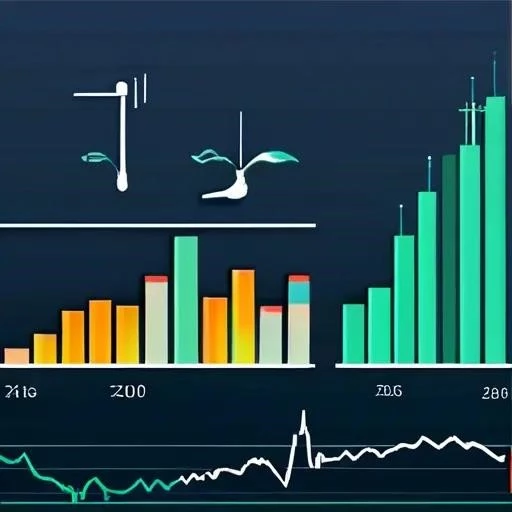In today’s world, where power outages are becoming increasingly common and the need for energy independence is growing, a power inverter for home use is no longer a luxury, but a necessity․ These devices are more than just backup solutions; they offer a pathway to energy independence, savings, and a more sustainable lifestyle․ Understanding the core benefits of investing in a power inverter for home use can empower you to make an informed decision that positively impacts your daily life and the environment․
Uninterrupted Power Supply: Peace of Mind During Outages
One of the most significant advantages of having a power inverter at home is the assurance of an uninterrupted power supply․ Imagine being in the middle of an important work project, a critical medical treatment requiring electricity, or simply enjoying a movie night when the lights suddenly go out․ A power inverter seamlessly switches to battery power, keeping your essential appliances and devices running without a hitch․ This is especially crucial for:
- Individuals working from home who rely on a stable internet connection and computer systems․
- Families with medical equipment that requires continuous power․
- Anyone who values the convenience and security of having essential appliances operational during emergencies․
Cost Savings: Reduce Your Electricity Bills
Beyond providing backup power, a power inverter can help you save money on your electricity bills․ By integrating with renewable energy sources like solar panels, you can use the power inverter to store excess solar energy in batteries during the day and then use that stored energy to power your home at night or during peak demand hours․ This reduces your reliance on the grid and lowers your monthly electricity costs․ Think of it as:
- A long-term investment that pays for itself over time through reduced electricity bills․
- A way to maximize the benefits of your solar panel installation․
- A contribution to a more sustainable lifestyle by reducing your carbon footprint․
Energy Independence: Taking Control of Your Power
Perhaps the most compelling benefit of a power inverter for home is the increased energy independence it provides․ By relying less on the grid and more on renewable energy sources and battery storage, you gain greater control over your energy supply and costs․ This independence is particularly valuable in areas prone to frequent power outages or those with unreliable grid infrastructure․ It means:
- Protection from rising electricity prices․
- The ability to power your home even when the grid is down․
- A sense of security and self-sufficiency knowing you’re less reliant on external power sources․
Choosing the Right Power Inverter
Selecting the appropriate power inverter depends on your specific needs and energy consumption․ Consider factors such as the total wattage of the appliances you want to power, the type of batteries you’ll be using, and whether you need a pure sine wave or modified sine wave inverter․ Consulting with an electrician or renewable energy specialist can help you make the right choice․
FAQ About Power Inverters for Home
What is a power inverter and how does it work?
A power inverter converts direct current (DC) electricity from a battery or solar panel into alternating current (AC) electricity, which is the type of electricity used by most household appliances․
How long will a power inverter run on battery power?
The runtime of a power inverter depends on the battery capacity and the power consumption of the appliances being used․ A larger battery and lower power consumption will result in longer runtime․
Is it safe to use a power inverter at home?
Yes, power inverters are generally safe to use at home, as long as they are properly installed and used according to the manufacturer’s instructions․ Be sure to use appropriate wiring and grounding to prevent electrical hazards․
To further illustrate the potential savings and independence gained with a power inverter, consider the following comparative table:
| Scenario | Without Power Inverter | With Power Inverter (Solar Integration) |
|---|---|---|
| Power Outage | No power, potential data loss, inconvenience․ | Seamless switch to battery power, continued operation of essential devices․ |
| Electricity Bill (Monthly) | Full reliance on grid, subject to fluctuating prices․ | Reduced grid dependence, lower bills due to solar energy usage․ |
| Energy Source | Solely reliant on grid electricity․ | Mix of solar and grid electricity, promoting sustainability; |
| Control Over Energy | Limited control, dependent on utility company․ | Greater control, ability to generate and store your own energy․ |
Installation Considerations
While the benefits are clear, proper installation is crucial for safety and optimal performance․ Here are a few key considerations:
- Wiring: Use appropriately sized wires to handle the current load․ Undersized wires can overheat and create a fire hazard․
- Grounding: Ensure proper grounding to prevent electrical shocks․
- Ventilation: Power inverters generate heat, so adequate ventilation is essential․
- Professional Installation: If you’re not comfortable working with electricity, hire a qualified electrician;
Choosing the right battery type is also important․ Lead-acid batteries are a more affordable option, but lithium-ion batteries offer longer lifespan, higher energy density, and faster charging times․ The best choice depends on your budget and specific needs․
Ultimately, the decision to invest in a power inverter is a personal one․ However, the ability to maintain power during outages, reduce electricity costs, and gain greater energy independence makes it a compelling option for many homeowners; By carefully evaluating your needs and considering the factors outlined above, you can determine if a power inverter is the right choice for your home and your future․ Investing in a power inverter is a significant step towards a more resilient and sustainable lifestyle․




